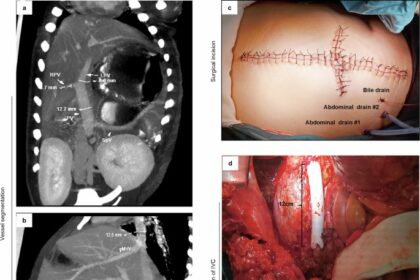Scientists from prestigious institutions in Beijing, including Tsinghua University and Beijing Normal University, have developed a pioneering method to selectively degrade multimeric proteins. Published in Cell, the study introduces TRIM21-based molecular glues and PROTACs as advanced tools for tackling diseases such as cancer, neurodegeneration, and autoimmunity.
Researchers have developed TRIM21-based molecular glues and PROTACs that target multimeric proteins by inducing clustering and selective degradation, including nuclear pore complex components.
Researcher Daily
The researchers, representing organizations like the Tsinghua Institute of Multidisciplinary Biomedical Research and the National Institute of Biological Sciences, focused on leveraging the unique properties of multimeric proteins to create a highly selective and effective degradation system. Their findings open new avenues for addressing the root causes of complex diseases by targeting previously undruggable proteins.
Key Discoveries
The study identifies a molecular glue degrader, (S)-ACE-OH, derived from the antipsychotic drug acepromazine, which induces an interaction between the E3 ubiquitin ligase TRIM21 and the nucleoporin NUP98. This interaction leads to the targeted degradation of nuclear pore proteins, disrupting nucleocytoplasmic trafficking, a process critical to cellular function.

What sets this discovery apart is its focus on multimeric proteins, which are complex assemblies of multiple protein subunits. Unlike traditional TPD methods that predominantly target monomeric proteins, the TRIM21-based strategy activates only when multimeric proteins induce substrate clustering. This precision spares monomeric proteins, minimizing off-target effects.
Potential Implications
Multimeric proteins play critical roles in disease pathways, particularly in biomolecular condensates that underlie neurodegenerative disorders, cancer, and autoimmune diseases. By leveraging TRIM21’s unique ability to selectively degrade these proteins, researchers are opening new therapeutic avenues to directly tackle the root causes of these conditions.
The study also showcases the versatility of TRIM21-based degraders, combining the benefits of molecular glues and PROTACs to achieve unparalleled specificity. This dual approach harnesses TRIM21’s E3 ubiquitin ligase activity, activated only through substrate-induced clustering, to target proteins that were previously considered undruggable.
Broader Impact
TPD technologies like PROTACs and molecular glues have revolutionized drug discovery, but their reliance on a limited set of E3 ligases has constrained their applications. The identification of TRIM21 as a viable target expands the toolkit for TPD, enhancing its scope and precision.
As diseases caused by aberrant protein assemblies remain a significant challenge, this study’s findings could pave the way for a new generation of targeted therapies. The ability to selectively degrade multimeric proteins not only improves the efficacy of treatment but also reduces side effects, marking a major step forward in personalized medicine.
Conclusion
The research underscores the immense potential of TRIM21-based molecular glues and PROTACs in addressing complex diseases.
Dr. Lu and the team have laid the groundwork for innovative treatments that could transform the landscape of modern medicine.
Scientific china
By advancing our understanding of protein degradation mechanisms, Dr. Lu and the team have laid the groundwork for innovative treatments that could transform the landscape of modern medicine.
For more details, refer to the full study: Selective degradation of multimeric proteins by TRIM21-based molecular glue and PROTAC degraders, available via DOI:10.1016/j.cell.2024.10.015.









